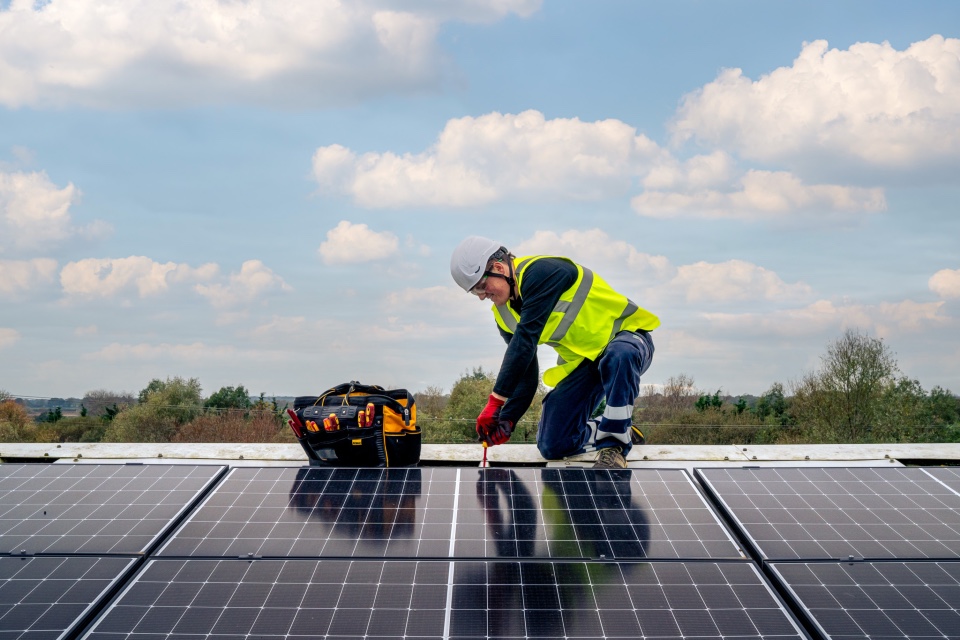The Office of Gas and Electricity Markets (Ofgem) and Innovate UK have announced the awarding of a further £9.7 million of SIF funding to 21 round 3 alpha projects that will be addressing challenges from network planning and connecting renewable energy sources to the grid, to managing demand and long-term energy storage.
All projects aim to provide consumers with a cost-effective, fair, and flexible low-carbon future, as we transition to net zero by 2030.
Through a competitive process, the alpha projects have been awarded funding to address the biggest challenges facing Britain’s energy networks.
Marzia Zafar, Deputy Director of Digitalisation & Innovation at Ofgem, said: “This money will drive innovation in our energy system to decarbonise, reduce bills and protect consumers, and Ofgem is excited to see these projects develop.
“We’re at a critical moment when it comes to our energy system, but by supporting fresh ideas and bold thinking, I’m confident we can reach net zero in the most equitable way possible, offering benefits for people all over the country.
“The Strategic Innovation Fund is an important part of reaching net zero, supporting people and organisations with great ideas to solve the major challenge of our time.”
HeatNet is one of the successful alpha phase projects building on its previous discovery phase findings. The project is looking at how to improve the process of network planning and connecting renewable energy sources to the grid.
The HeatNet project tackles the challenge of managing rising heat pump demand. As the adoption of heat pumps accelerates, the need for smarter solutions to tackle costly voltage drops and network strain is growing.
The project will refine smart coordination tools that will support more heat pumps without the need for expensive network reinforcement and upgrades. This will ensure a reliable network that meets consumer needs and keeps them comfortable.
Most projects follow the SIF three phase process, discovery, alpha and beta, competing for higher levels of funding at each phase, with fewer projects going through each time. But the flexibility-of-funding provided by SIF means that not all projects must follow that same path.
Projects that align with a challenge and meet the necessary requirements, can submit an application straight to alpha or beta. Projects that meet this criterion include those funded by SIF in a previous round or funded from an energy innovation fund such as the Network Innovation Allowance (NIA).
The HyScale Liquid Organic Hydrogen Carrier (LOHC) Phase 2b project is a great example of this, meeting the SIF straight to alpha criterion through NIA funding of HyScale LOHC Phase 2a.
The Hyscale LOHC project aims to demonstrate how an LOHC system can be used for capturing, storing and releasing hydrogen into a gas network to manage long-duration storage requirements.
The use of LOHCs connected to an electrolyser and a hydrogen gas network, will enable it to run flexibly and take advantage of low electricity prices. This will reduce the cost of producing hydrogen for consumers, accelerating the uptake of hydrogen for industrial needs, power generation and domestic heating.
This coordination between different funding mechanisms allows the SIF to support building the right partnerships to share knowledge and nurture the ideas with the highest potential in the drive to decarbonise.
Paul Padaruth, Head of Commercial, Ofgem Strategic Innovation Fund at Innovate UK said: “The Strategic innovation fund continues to find and fund ambitious innovation that can deliver meaningful change in the drive to decarbonise our energy system.
“Congratulations to the successful projects. It is great to see the evolution of existing partnerships and the creation of new ones in the projects that have been successful in securing funding.
“Through the creativity and ambition of the partners and these projects, I am confident we will see successful innovation that will support our net zero objective.”




